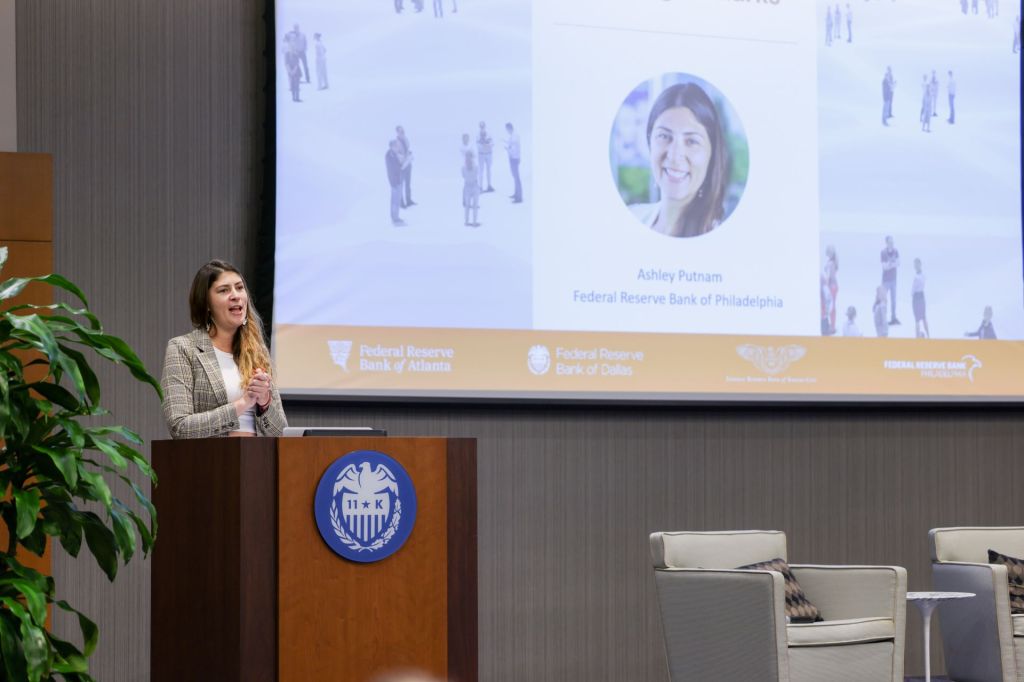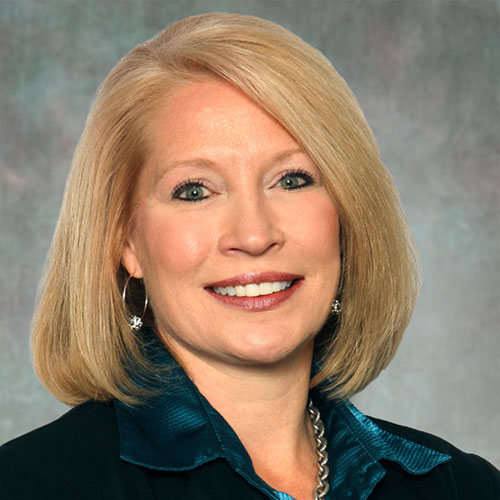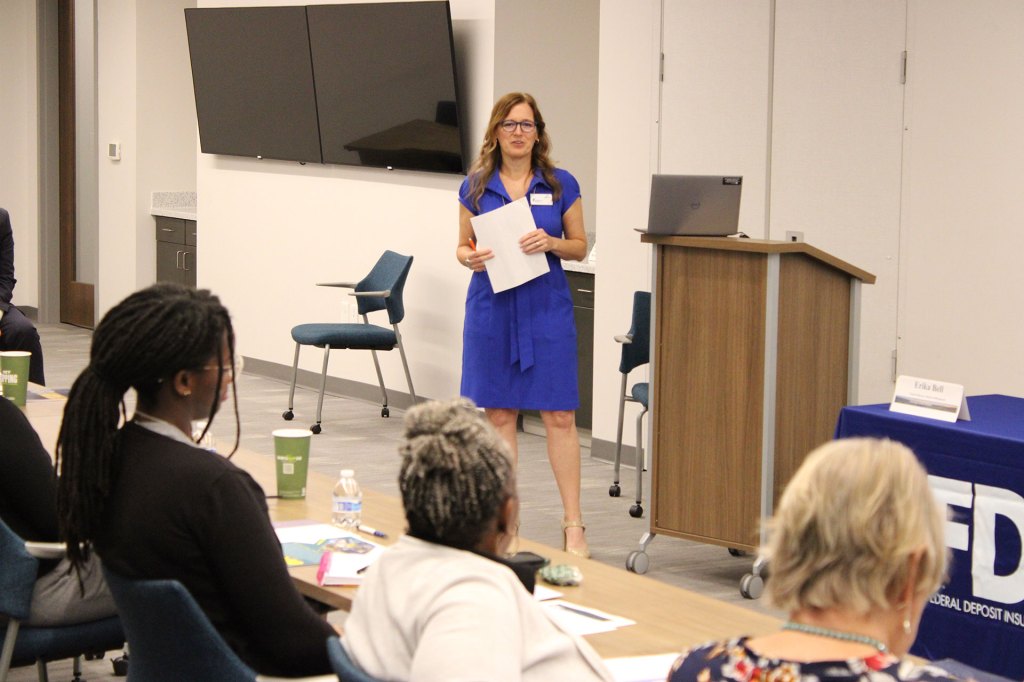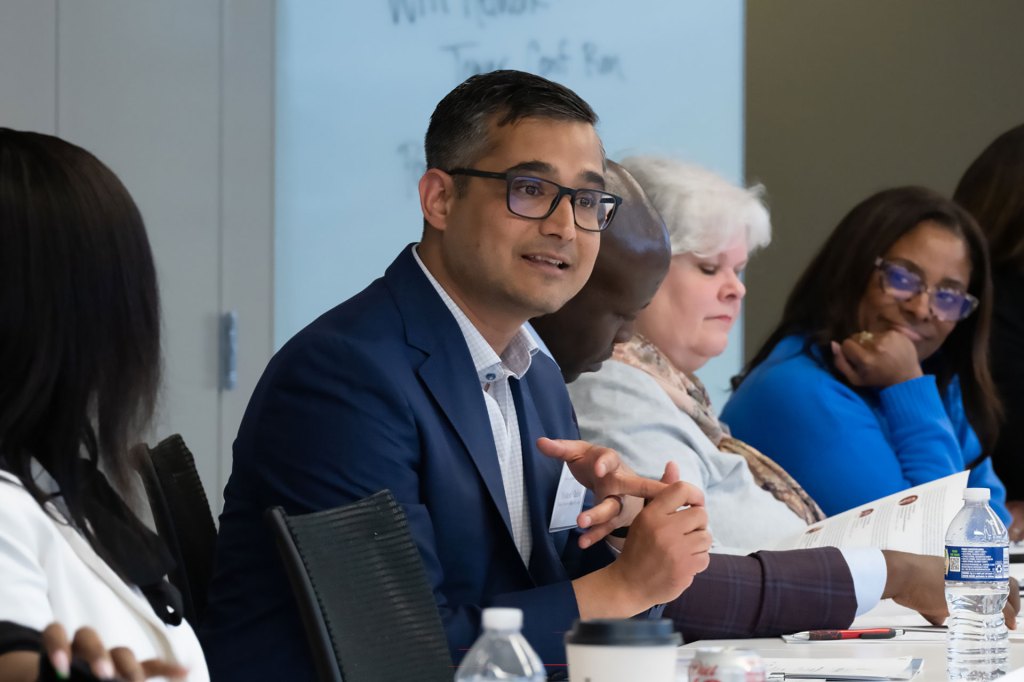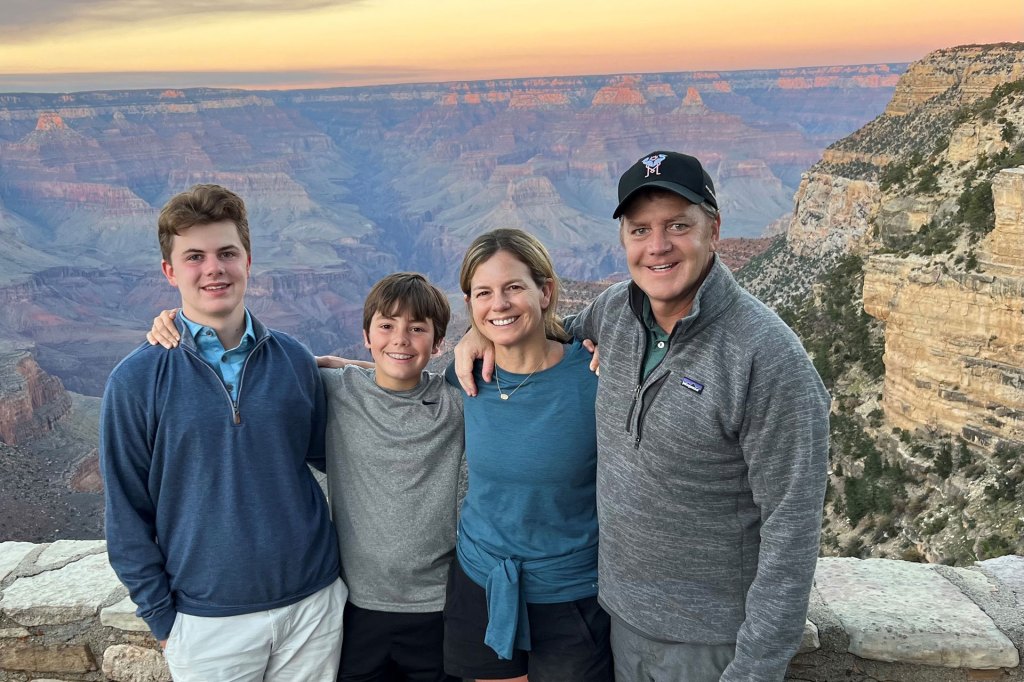Ashley Putnam, Director, Economic Growth and Mobility Project, Philadelphia Fed
It’s no coincidence that Ashley Putnam is doing today what she set out to do early in her career—turn her passion for people and research into action and change.
As the director of the Philadelphia Fed’s Economic Growth and Mobility Project (EGMP), Ashley knows that change starts with listening. She uses her prior experience in public policy, community organizing, and workforce development to lead programs that help organizations think differently about how they make a difference in their communities.
Passion for change starts early
The child of two academics, Ashley began her career journey thinking about research. As a young girl, she recalls attending academic conferences all over the world with her mother. Today, Ashley credits her career path to her upbringing. “[It] influenced the two parts of me,” she says. “The piece of me that is really interested in the academics, research, and intellectual side of our work. And then the piece of me that is very action-oriented and driven, having done community organizing work, and that really wants to see change happen.”
After growing up in a small college town in Texas, Ashley headed to New York City to attend Barnard College at Columbia University. Intrigued by how culture impacts people’s decisions, she majored in anthropology and pursued an undergraduate degree in psychology. While she thought she might not use her disciplinary work in the field of anthropology itself, Ashley noted that “a lot of the ethnographic research I did as an anthropology undergraduate has informed the way I think about the qualitative research I’m now doing at the Fed.” Simply put, ethnographic research is the study of people in their own environment, using methods such as participant observation and face-to-face interviewing. “I truly believe we can learn a lot from the people who are experiencing things in the community.”
Helping job seekers navigate the labor market
Ashley started her career as a community organizer, traveling around the country working on political campaigns. In 2009, she began a job in New York City as a case manager for a social services agency. She worked with individuals trying to navigate the labor market during a recession. She listened to stories about families struggling to find jobs. Often, they found it difficult to budget for a family of two when the minimum wage was $7.25 per hour, which was not enough to afford an apartment in New York City. “I had a lot of assumptions of what I thought poverty looked like,” she says. “The work I was doing really shifted the way I saw the world and the way I understood policy to work.”
It was this work that motivated Ashley to organize the Work First Fellowship. The Work First Fellowship, now called the America Works Fellowship, is a public policy program that joins undergraduate and graduate school students looking to make a direct impact on urban poverty. Fellows complete one year of service and a research project around issues of policy, poverty, and workforce. Founded in New York in 2015, the program still exists today and has since become national.
The stories Ashley heard while working in direct services changed how she thought about policy and her career. “The work I did and the stories I heard are really what pushed me to be very interested in public policy, poverty, and workforce development.”
As a result, Ashley headed to NYU to pursue a master’s degree in public administration. Her focus shifted from helping individuals navigate the labor market, to learning why the existing policies designed to remedy this situation weren’t working.
After graduation, Ashley worked in the Office of Workforce Development for the New York City Office of the Mayor. In the role of economic development advisor, she worked with administrators to consider how the city could better create and connect people to quality jobs created by city funds. She now found herself sitting at the intersection of economic development and workforce development. “This was exactly the kind of policy I was excited to be working on,” she says.
And for Ashley, it was only the beginning.
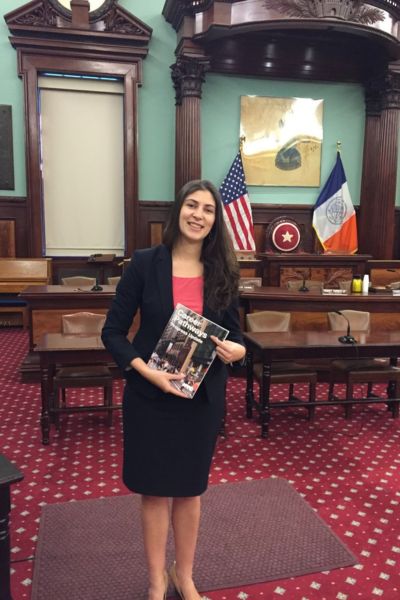
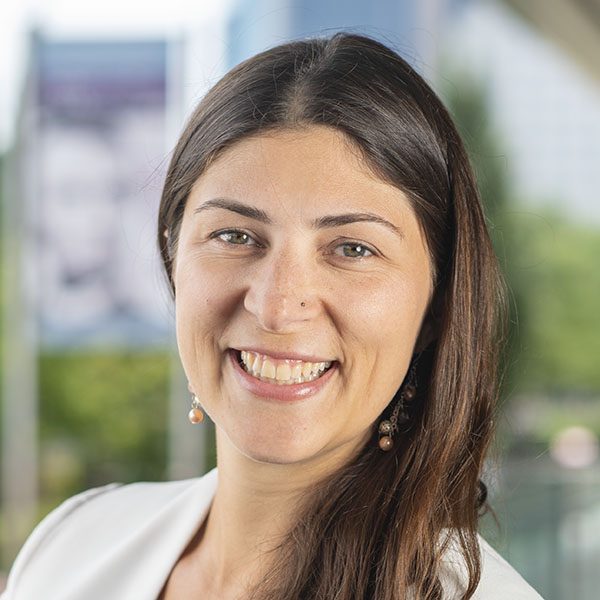
“There is a reason the Fed does this work. The reason we talk about economic mobility is because it’s important for economic growth. And it’s really important for good, inclusive, and resilient economies.”
Bringing it all together
In 2017, Ashley joined the Philadelphia Fed as the director of the Economic Growth and Mobility Project (EGMP). The EGMP, a program unique to the Fed, is a strategic partnership to bring research into practice through community-driven solutions.
One technique used to help communities address specific economic problems is Research in Action Labs. The labs are 18- to 24-month strategic partnerships with communities, using Federal Reserve research to help stakeholders solve critical issues of economic mobility. “We are like an innovation lab,” she says. “Not innovating inside of our organization but innovating in and helping communities with the work we do.”
Specifically, the labs address three major areas of focus:
- Infrastructure
- Workforce development
- Job creation
Looking beyond the numbers
Reflecting on the experiences earlier in her career in workforce, in 2022, Ashley and a team of researchers from across the Federal Reserve System combined efforts to launch the Worker Voices Project. The team talked with 167 noncollege, low-wage workers and job seekers to gain a better understanding of the workers’ experiences navigating the labor market at the onset of the COVID-19 pandemic and beyond.
In 2023, the group published a series of reports that outlined their findings. They detail key themes about what workers look for in employment, and include many direct quotes from workers interviewed. While the analysis is still ongoing, the results answer many questions that employers ask today.
“The Worker Voices Project work was an alignment of pieces of my life, my experience, and my journey,” she says. “And there’s something really incredible about getting to work with some of the greatest minds on workforce development and labor market inequality.”
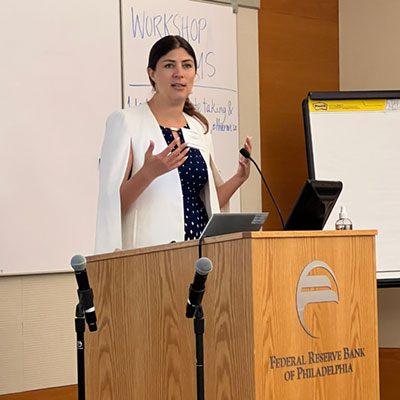
Looking ahead
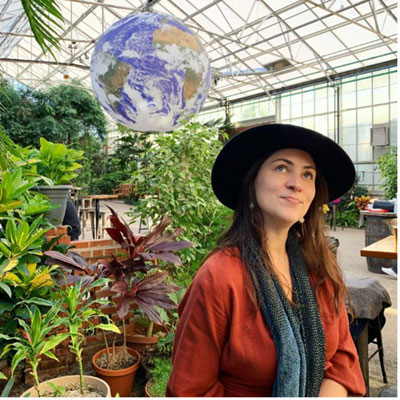
In thinking about how regions can build a more inclusive economy, Ashley is collaborating with her Philadelphia Fed colleague, Deborah Diamond, around a new Research in Action Lab project called Anchors for Equity.
Anchor institutions, or large, public-serving institutions like hospitals or universities, have a vital economic impact on their communities. Anchors for Equity will bring these institutions together with other regional stakeholders to consider opportunities to create better pathways for jobseekers locally.
Ashley’s biggest commitment going forward is to continue to elevate the voices of people who are struggling to inform better policy and research.
“There is a reason the Fed does this work,” says Ashley. “The reason we talk about economic mobility is because it’s important for economic growth. And it’s really important for good, inclusive, and resilient economies.”

